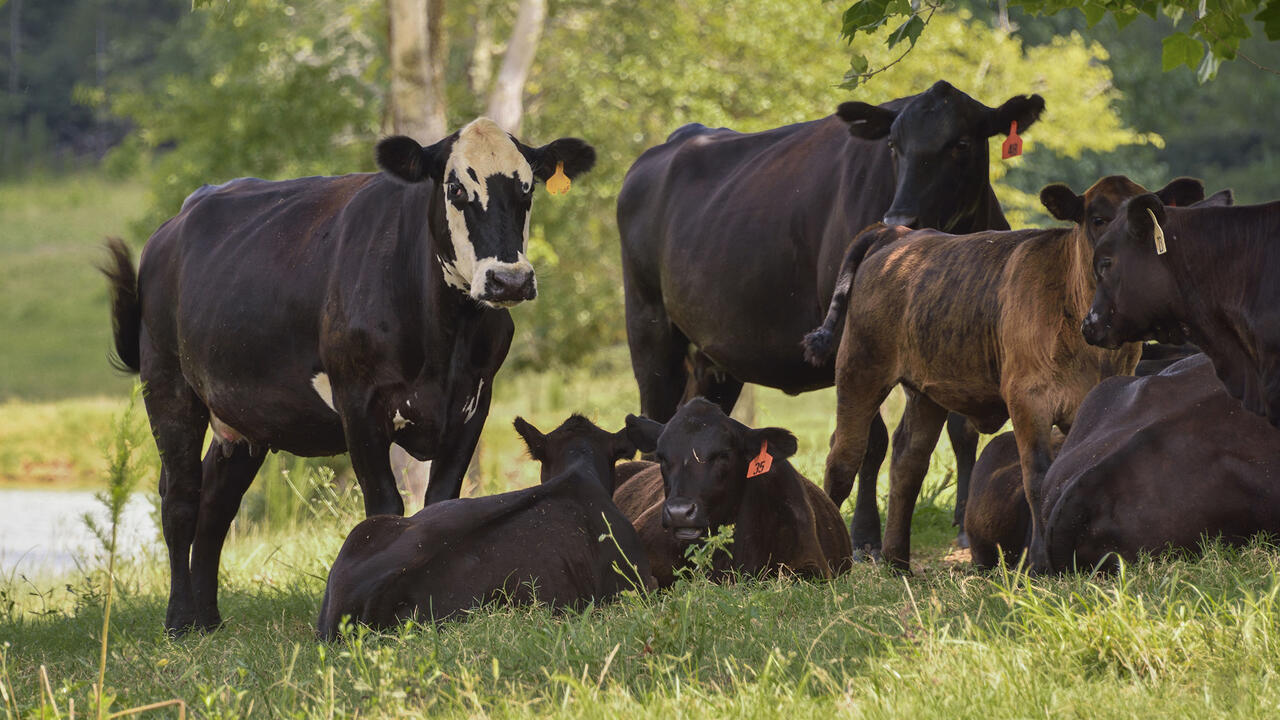STARKVILLE, Miss. -- Food supplies in the U.S. are abundant and safe, despite some challenges in packaging and distribution related to COVID-19.
Robert Johannson, chief economist for the U.S. Department of Agriculture, acknowledged “widespread worries that the disease could threaten the nation’s food production and supply systems and stoke inflation” in a statement issued April 16.
Despite these worries, consumers will still be able to find and afford the food they need, including pork, poultry and beef, according to agricultural economists and food safety specialists with the Mississippi State University Extension Service. In fact, the most recent USDA data projection of 108 billion pounds of red meat and poultry production in 2020 would be the largest annual total on record.
At the beginning of the outbreak, consumers stocked up on food at their local grocery stores because of restaurant dining room closures and stay-at-home orders. Extension agricultural economist Josh Maples said wholesale meat prices since then reflect these demand shifts.
“Prices for most meat cuts typically sold at restaurants are sharply lower, while wholesale prices for meat cuts traditional to the grocery setting have increased,” Maples said. “These price changes have led to an incentive for manufacturers and retailers to replenish shelves and also to divert product from food service destinations to grocery stores.”
Courtney Crist, assistant Extension professor in food safety, said there is no need to “panic buy” meat.
“There may be some processed product shortages due to additional labor input, but meat will still be available to purchase,” Crist said. “None of the processing plants closed because of COVID-19 controls more than 5 percent of the total U.S. production, which helps secure a consistent supply. There may be some temporary disruptions in some supply chains, but not all plants will close at the same time, and most will continue to operate.”
Meat product safety concerns arose after reports of more than 600 cases of COVID-19 being linked to the closure of a pork processing facility in South Dakota. Consumers are right to be concerned about precautions being taken in the meat processing sector, said Extension meat scientist Byron Williams. However, the industry as a whole is reducing or staggering shifts at some processing facilities to keep employees safe and to implement additional sanitation practices with additional uses of personal protective equipment, he said.
“It is important to remember that there is no evidence of food or food packaging being associated with transmission of COVID-19, and there is currently no scientific evidence to show that COVID-19 is contracted by consuming food, even if it potentially was handled by a production employee who tested positive for coronavirus,” Williams said. “Unlike norovirus and hepatitis A, which often make people ill through contaminated food, there is no evidence that SARS-CoV-2, which causes COVID-19, is food-borne.”
“The virus is thought to spread mainly from person to person,” he added. “The well-established and required sanitation practices for food production facilities are ongoing. All production plants have to meet the same rigorous, federally mandated parameters that they did before COVID -19.”
Crist said consumers should continue to follow the four steps of food safety -- clean, separate, cook and chill -- to prevent foodborne illness.
“It is important for consumers to stay vigilant and follow good handwashing and home food safety practices,” she said. “Most meat products are further heated by the consumer, and temperatures of at least 145 degrees for four or more minutes will destroy the virus.”
A webinar with experts from the Mississippi State University Extension Service will address pressing questions about the effects of the novel coronavirus pandemic on food production in the U.S. The webinar targets consumers, producers, business owners, community leaders and anyone interested in the food supply chain. Topics include the impact of the recent pandemic on the supply chain, prices, agricultural production, demand and food safety.
The webinar begins at 11 a.m. on April 24. Participants can register at https://bit.ly/3el2owR. For more information and Extension publications on the novel coronavirus, visit http://msuext.ms/covid.
Contacts
-
 Associate Extension Professor
Associate Extension Professor -
 Assoc Professor & Assistant Di
Assoc Professor & Assistant Di- Agricultural Economics
